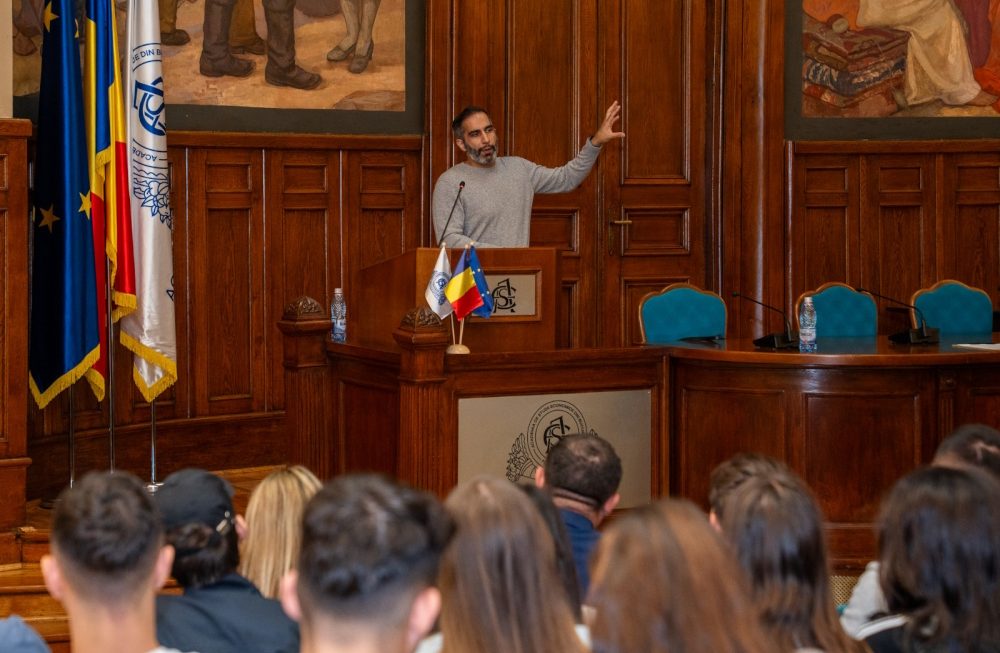
Mixed blessings
Foto: vladem / depositphotos.com
15 years ago, on January 1st 2007, Romania became a member of the European Union – a nice, round anniversary, prompting all sorts of festive messages. President Klaus Iohannis said that the accession to the EU anchored Romania in the European area of democracy and values and that the European path legitimately remains Romania‘s only option for long-term prosperity, stability and development. He mentioned the tangible benefits and improvements in everyday life. Equally significant, the President found it essential to draw attention that Romania‘s membership of the European Union is not „a given“, but is built through solidarity, responsibility, the power of consensus, respect for others.
Prime minister Nicolae Ciucă was more specific in his message and recalled that Romania’s Gross Domestic Product has tripled since joining the EU – from almost 343 billion lei in 2006 to 1,190 billion lei in 2021, while the GDP per capita has almost quadrupled to over 61,000 lei. He spoke of European expertise and funding and the fact that over 90 billion euros are being made available in the coming years through the National Recovery and Resilience Plan and the multiannual financial framework. But perhaps the most important gain has been free movement for people, goods and services, the retired general said: millions of Romanians work, study or holiday in other EU countries and the majority of Romanian exports are to EU Member States. Referring to the future, Romania’s action at European level will continue to be guided by full respect for the rule of law, for the Treaties of the Union and for the principles and values enshrined in the Treaties, as basic pillars of the Union, as well as for European law in general, the Romanian Prime minister said as well.
20 years ago, the European Union had a magnetic pull on Romanian society. Joining the Union seemed not just the best, but more like the only reasonable option for the future of the country. Surveys conducted by the European Union itself at the time of the accession clearly demonstrate how popular it was. Current figures however show a disenchantment. In late 2006, 67% of Romanians trusted the Union they were about to join a little while later. In 2017, trust plummeted to 52%. Today it stands at about 58%.
From a strictly financial point of view, Romania’s membership in the EU was a complete success – in the past 15 years, Brussels paid about 62 billion euros in various forms to Romania, while the contribution of the country amounted to only 21 billion: a positive net balance, Ramona Chiriac, Head of the European Commission’s representation in Bucharest, recently calculated. The money was and is being used (with various degrees of success) to modernize the Romanian economy and public infrastructure and to reduce the gap between Romania and the rest of the EU.
But the financial inflow from Brussels is only one of the effects. The economy opened for investors, who brought much needed capital. In the almost 20 years since Romania became a candidate country and then a member of the European Union, foreign direct investment exceeded 80 billion euros – companies were bought and fitted with modern technology, entire sectors – like the automotive industry – were made fit and connected with the global supply chains.
However, what counts as a success for supporters of the European model is judged differently by critics: they complain about the fact that Romanian capital has totally lost its grip on key sectors like industry, finances, and mineral resources. In their view, rich investors took advantage and bought everything up at a veritable yard sale organized by a poor and dysfunctional economy on orders from Brussels.
One name disgruntled Romanian commentators often quote in this discussion is that of Thomas Piketty, the French author of bestsellers like Capital in the Twenty-first Century (2013) and Capitalism and Ideology (2020). Even though he did not specifically cover Romania, in his blog on the Le Monde platform, Piketty said that “between 2010 and 2016, the annual outflow of profits and incomes from property (net of the corresponding inflows) … represented on average 4.7% of the gross domestic product in Poland, 7.2% in Hungary, 7.6% in the Czech Republic and 4.2% in Slovakia, reducing commensurately the national income of these countries. By comparison, over the same period, the annual net transfers from the European Union, that is, the difference between the totality of expenditure received and the contributions paid to the EU budget, were appreciably lower: 2.7% of the GDP in Poland, 4.0% in Hungary, 1.9% in the Czech Republic and 2.2% in Slovakia.”
But even the star economist admits that one could “reasonably argue that Western investment enabled the productivity of the economies concerned to increase and therefore everyone benefited.” At least some of the input – like work ethics or process know-how – is difficult to be quantified and counts toward what might be called Western soft power.
Another controversial topic is emigration – although the EU is reluctant to call it by this name, since people, services, goods, and capital are moving freely inside the European single market. Semantics aside, millions of Romanians left their country to work and live in other European countries – more than 1.1 million in Italy, over 700,000 in Germany or close to 600,000 in Spain, to count just the larger communities of the Romanian diaspora inside the EU. So many people have left and settled abroad, that former Labour secretary Raluca Turcan noticed in 2021 something worrying: there are more Romanian babies born outside than inside the country. Romania will probably keep haemorrhaging people. A think tank found out in a survey that some 730,000 Romanians want to leave the country in 2022. For some sectors, the brain drain is staggering. For instance, a study by the OECD established that about one third of Romanian doctors who studied in their country were working abroad in 2018 – it is the highest emigration rate among medical staff, the OECD says. But this movement also made Romania the EU member with the highest remittances – in 2020 the money sent home by Romanian working abroad even topped the FDI. The moment of accession to the EU might be a thing of the past, but membership is still not really complete: as the Prime minister did not fail to acknowledge, Romania’s full European integration must include reaching major objectives. On a bigger list, joining the Schengen Area and entering the Eurozone are two goals with high economic relevance.
And tackling these major challenges is no easy task.
For one, being allowed into the Schengen area would dramatically improve cross-border trade and transport especially on the western border to Hungary, where waiting times for trucks sometimes reach hours and even days. Alas, joining Schengen is mostly out of Romania’s hands. Technical conditions are met, the European Commission expressed its support, as did the European Parliament. But the final step has to be okayed by the European Council, and member states are unable to reach the necessary unanimous vote on the matter. Countries like the Netherlands, France, Germany or Finland opposed Romanian membership at various moments. Even though France, which currently holds the presidency of the Council of the European Union, is now speaking more favorable about an accession to the Schengen area, the topic is still tightly connected to improvements in the rule of law – but latest developments, with the Constitutional Court in Bucharest almost declaring EU-law irrelevant, do not bode well for the next report under the Cooperation and Verification Mechanism in the area of justice (its mere existence is another stain on the Romanian EU-membership).
Secondly, the COVID-19 pandemic has pushed Romania further and further away from an accession to the Euro area. Already the last convergence report of the European Central Bank describes a bleak state of play – and it was published in 2020. Since then, the current situation has worsened in all relevant respects, such as inflation, long term interest rates or public deficits. Authorities openly admit that while Romania remains committed to joining the euro area, currently the government’s efforts are focused on minimizing the negative social and economic effects of the COVID-19 pandemic, and will then implement economic recovery measures, as the Convergence Program from 2020 states. The National Bank of Romania is not sugar-coating anything either. In May 2021, a BNR report mentioned Romania joining the Euro area somewhere in 2028-2029. And the first deputy BNR governor, Florin Georgescu, mentioned 2029 when speaking at an event. We missed all our chances until now, he concluded when asked about the adoption of the Euro in Romania. And while the public loves the Euro, they know that adopting the currency is no game. In a Eurobarometer survey examining the mood in member states that have not yet adopted the common currency, the European Commission reported in 2021 that no less than 75% of Romanians are in favor of the introduction of the euro and 46% want it as soon as possible, while almost two thirds, 63%, believe that the adoption of the euro would be a positive thing for Romania. But even with only 48% of the public considering being informed about the Euro, 69% are aware that Romania is not ready to adopt the euro.
Alex Gröblacher
Share
Share















